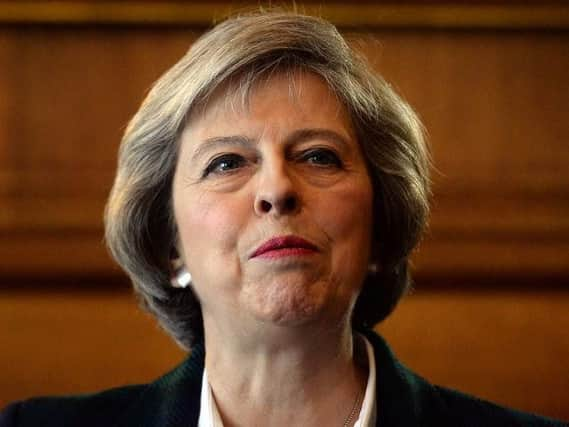Return of the 11-plus: Does Theresa May back selective grammar schools?


Opposition parties reacted with fury to reports that selective education may be back on the agenda, vowing to fight a system which Labour spokeswoman Angela Rayner said should be placed “in the dustbin of history”.
The Sunday Telegraph reported yesterday that the Prime Minister could announce she is lifting the ban on new grammar schools as early as the October Conservative conference.
Advertisement
Hide AdAdvertisement
Hide AdDowning Street did not deny the report, but said only that any change in policy would be announced “in due course”.
A Number 10 spokesman said: “The Prime Minister has been clear that we need to build a country that works for everyone, not just the privileged few.
“Every child should be allowed to rise as far as their talents will take them and birth should never be a barrier.
“Policies on education will be set out in due course.”
Education Secretary Justine Greening last month confirmed that the issue was in her “in tray” for consideration, and said that she was “prepared to be open-minded” about school selection.
Advertisement
Hide AdAdvertisement
Hide AdBut she signalled that this might not mean a return to the old pattern of grammars and secondary moderns by stressing that education was no longer a “binary” world and that there was already a range of different types of school on offer.
Mrs May is thought to be a supporter of new selective schools, having backed a grammar school’s proposal to open a new “annexe” in her Maidenhead constituency. And the Prime Minister’s new chief of staff Nick Timothy has also backed new selective schools in the past.
Mrs May’s predecessor David Cameron annoyed some Conservative backbenchers by resisting the creation of new grammar schools, focusing his education policy instead on academies and free schools which do not select on ability at the age of 11.
Any return to the grammar system can be expected to be divisive. Opponents argue that the 11-plus exam led to elite schools dominated by middle-class children while the majority of young people from poorer backgrounds received sub-standard education in secondary moderns.
Advertisement
Hide AdAdvertisement
Hide AdLabour’s Deputy Leader, Tom Watson, said: “The Labour Party opposes Theresa May’s plan to bring back secondary modern schools in England.”
And Shadow Education Secretary Ms Rayner said: “Rather than harking back to a mythical ‘golden age’ of grammar schools, the Tories must work tirelessly to improve every school in the country, to work with teachers to drive up standards, and to give our schools the investment they need in the 21st century.
“Selection belongs in the dustbin of history and has no place in modern society. There must be no going back.”
Liberal Democrat leader Tim Farron said: “Lib Dems will work to block any Tory attempt to create grammar schools.”
Advertisement
Hide AdAdvertisement
Hide AdLabour leadership contender Owen Smith said that it was a sign of the party’s ineffectiveness under Jeremy Corbyn that Mrs May believed she could “get away with” a return to selection.
“Grammar schools entrench disadvantage – they don’t overturn it,” said Mr Owen.